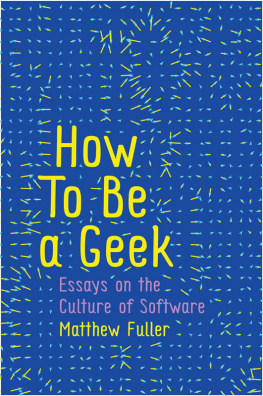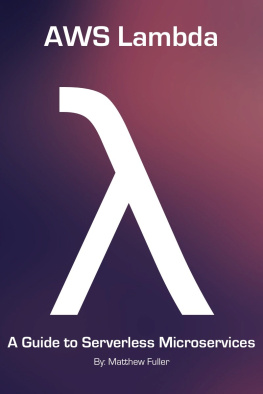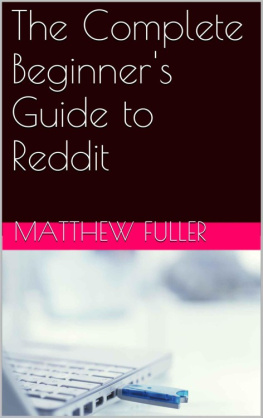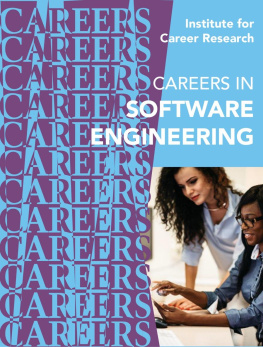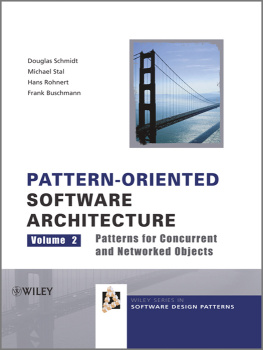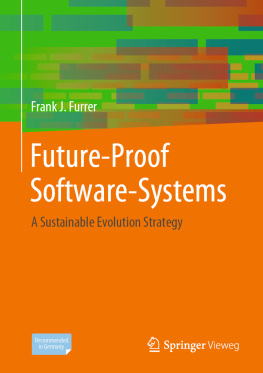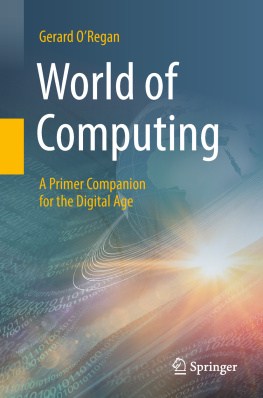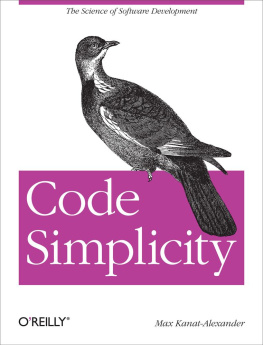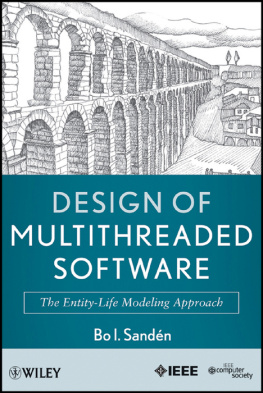
Copyright page
This collection Polity Press 2017
Introduction & Chapters 3, 6, 10, 11 & 12 Matthew Fuller
Chapter 1 Matthew Fuller & Andrew Goffey
Chapter 2 Matthew Fuller & Graham Harwood
Chapter 4 Matthew Fuller, Andrew Goffey, Adrian Mackenzie, Richard Mills & Stuart Sharples
Chapter 5 Matthew Fuller, Nikita Mazurov & Dan McQuillan
Chapter 7 Matthew Fuller & M. Beatrice Fazi
Chapter 8 Matthew Fuller & Olga Goriunova
Chapter 9 Matthew Fuller & Snia Matos
The right of Matthew Fuller to be identified as Author of this Work has been asserted in accordance with the UK Copyright, Designs and Patents Act 1988.
First published in 2017 by Polity Press
Polity Press
65 Bridge Street
Cambridge CB2 1UR, UK
Polity Press
350 Main Street
Malden, MA 02148, USA
All rights reserved. Except for the quotation of short passages for the purpose of criticism and review, no part of this publication may be reproduced, stored in a retrieval system or transmitted, in any form or by any means, electronic, mechanical, photocopying, recording or otherwise, without the prior permission of the publisher.
ISBN-13: 978-1-5095-1715-2
ISBN-13: 978-1-5095-1716-9 (pb)
A catalogue record for this book is available from the British Library.
Library of Congress Cataloging-in-Publication Data
Names: Fuller, Matthew, editor.
Title: How to be a geek : essays on the culture of software / [compiled by] Matthew Fuller.
Description: Cambridge, UK ; Malden, MA, USA : Polity, 2017. | Includes bibliographical references and index.
Identifiers: LCCN 2016042587 (print) | LCCN 2016058649 (ebook) | ISBN 9781509517152 (hardback) | ISBN 9781509517169 (pbk.) | ISBN 9781509517183 (Mobi) | ISBN 9781509517190 (Epub)
Subjects: LCSH: Software engineeringPsychological aspects. | Software engineeringSocial aspects.
Classification: LCC QA76.76.H85 H69 2017 (print) | LCC QA76.76.H85 (ebook) | DDC 005.1dc23
LC record available at https://lccn.loc.gov/2016042587
Typeset in 10.5 on 12 pt Sabon by Toppan Best-set Premedia Limited
Printed and bound in Great Britain by CPI Group (UK) Ltd, Croydon
The publisher has used its best endeavours to ensure that the URLs for external websites referred to in this book are correct and active at the time of going to press. However, the publisher has no responsibility for the websites and can make no guarantee that a site will remain live or that the content is or will remain appropriate.
Every effort has been made to trace all copyright holders, but if any have been inadvertently overlooked the publisher will be pleased to include any necessary credits in any subsequent reprint or edition.
For further information on Polity, visit our website: politybooks.com
Acknowledgements
The Obscure Objects of Object Orientation (with Andrew Goffey) was previously published in Penny Harvey, Eleanor Conlin Casella, Gillian Evans, Hannah Knox, Christine McLean, Elizabeth B. Silva, Nicholas Thoburn and Kath Woodward, eds., The Routledge Companion to Objects and Materials, Routledge, London, 2013, and in a variant form in Zeitschrift fr Medienwissenschaft. With thanks to Claus Pias, Elizabeth B. Silva and Nicholas Thoburn.
Abstract Urbanism (with Graham Harwood) was previously published in Rob Kitchin and Sung Yueh Perng, eds., Code and the City, Routledge, London, 2016, and presented at the Programmable City workshop at Nirsa in Maynooth the previous year. Thanks to all at the Programmable City project.
Software Studies Methods was previously published in Jentery Sayers, ed., The Routledge Companion to Media Studies and Digital Humanities, Routledge, New York, 2016. With thanks to Wendy Hui Kyong Chun and Jentery Sayers.
Big Diff, Granularity, Incoherence and Production in the Github Software Repository (with Andrew Goffey, Adrian Mackenzie, Richard Mills and Stuart Sharples) was previously published in Ina Blom, Trond Lundemo and Eivind Rssaak, eds., Memory in Motion: Archives, Technology and the Social, Amsterdam University Press, Amsterdam, 2016. It follows research with the co-authors in the ESRC-funded Metacommunities of Code project, led by Adrian Mackenzie.
The Author Field (with Nikita Mazurov and Dan McQuillan) follows from work on the London Cryptofestival in November 2013. With thanks to Yuk Hui.
Always One Bit More: Computing and the Experience of Ambiguity was previously published in Olga Goriunova, ed., Fun and Software: Pleasure, Pain and Paradox in Computing, Bloomsbury, New York, 2015. With thanks to Olga Goriunova, Annet Dekker and Anette Weinberger.
Computational Aesthetics (with M. Beatrice Fazi) was previously published in Christiane Paul, ed., A Companion to Digital Art, Wiley-Blackwell, Oxford, 2016. With thanks to Christian Paul and Beatrice Fazi.
Phrase (with Olga Goriunova), was previously published in Celia Lury and Nina Wakeford, eds., Inventive Methods, Routledge, London, 2013. With thanks to Olga Goriunova, Celia Lury and Nina Wakeford.
Feral Computing: From Ubiquitous Calculation to Wild Interactions (with Snia Matos) was previously published in Fibreculture Journal, Sydney, 2011. With thanks to Snia Matos and Andrew Murphie.
Just Fun Enough To Go Completely Mad About: On Games, Procedures and Amusement was previously presented as a paper at the St Petersburg Centre for Media Philosophy; a workshop organized by the ARITHMUS research project at Goldsmiths; and C-Dare at Coventry University. Thanks to Alina Latypova, Evelyn Ruppert, Baki Cakici, Hetty Blades and Scott de la Hunta.
An early version of Black Sites and Transparency Layers was given as a talk organized by Robin McKay of Urbanomic at Thomas Dane Gallery, London, March 2015. With thanks to John Gerrard. A later version was presented at the Academy of Fine Arts Nuremburg, with thanks to Kerstin Stakemeier; at the Interface Politics conference, Barcelona, April 2016, with thanks to Jaron Rowan and Pau Alsina; and as an inaugural lecture at Goldsmiths, with thanks to everyone there.
Thanks to Femke Snelting and Sarah Magnan of Open Source Publishing for the cover design, and to John Thompson and George Owers at Polity for an easy and affable collaboration. Many thanks to Fiona Sewell for brilliant diagnoses and surgery of the text.
Biographies of Co-Authors
M. Beatrice Fazi is a Research Fellow at the Humanities Lab, Sussex University, where she works on the cultural theory and philosophy of computing.
Andrew Goffey is co-author, with Matthew Fuller, of Evil Media and translator of books by Flix Guattari and Isabelle Stengers amongst others. He is Associate Professor in Critical Theory and Cultural Studies at the University of Nottingham.
Olga Goriunova is Senior Lecturer in the Department of Media Arts, Royal Holloway, University of London, and is editor and curator of many projects, and author of Art Platforms and Cultural Production on the Internet.
Graham Harwood is a member of the artist group YoHa and Senior Lecturer at Goldsmiths, University of London.
Adrian Mackenzie is Professor of Sociology at Lancaster University and author of numerous books including Wirelessness: Radical Empiricism in Network Cultures.
Snia Matos is a designer, Lecturer in the Department of Design, University of Edinburgh, and a Research Fellow at the Madeira Interactive Technologies Institute.
Next page
